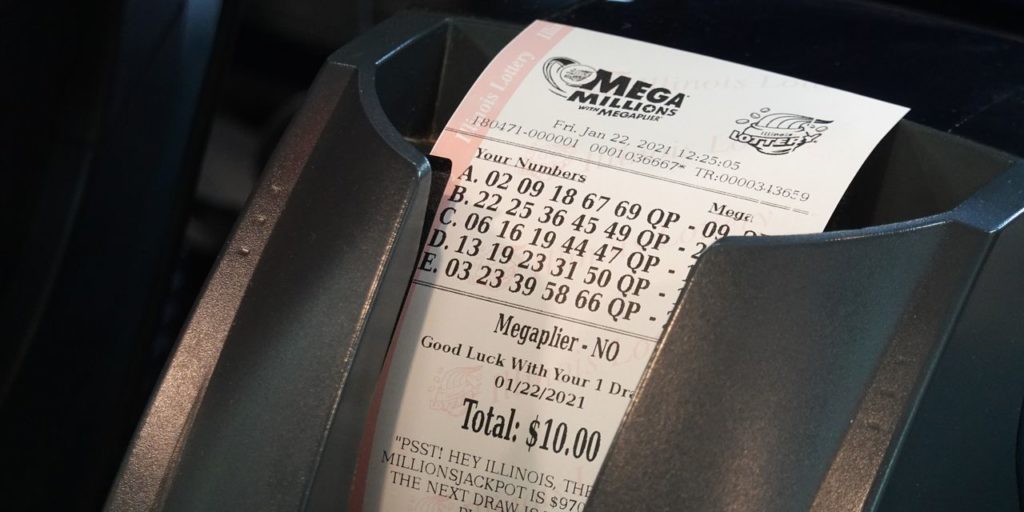For one lucky lottery player, retirement planning just got a whole lot easier.
Last Monday’s $699.8 million Powerball jackpot—the seventh-biggest in U.S. lottery history, according to Powerball.com—went to a lone winner, who purchased the ticket in California. Even if the holder takes the $496 million cash prize over the full jackpot amount spread out over 29 years in an annuity, he or she should have ample income for a potentially long retirement.
A chance at that kind of money can be hard to pass up, even if the odds of winning a Powerball jackpot are 1 in 292.2 million. For Mega Millions, another multistate lottery whose jackpots often end up in the hundreds of millions,the odds are even worse at 1 in 302.5 million. Still, as Monday’s drawing proves, someone has to win eventually.
“We actually do have one client who won the lottery, so it does happen,” said Kevin Barlow, managing director at Miracle Mile Advisors. “But in general, the value of the lottery is in dreaming about winning, not in actually having a high likelihood of winning. And unfortunately, it’s often the people who have less money to lose who play the lottery.”
With lottery jackpots climbing higher in recent years, even the most disciplined savers can be tempted to take a shot. What’s more, lottery games are expanding and becoming more expensive to play. In August, Powerball added a Monday drawing to its weekly schedule of Wednesdays and Saturdays. Mega Millions, which holds drawings Tuesdays and Fridays, might follow suit.
But players should remember that each $2 ticket is almost guaranteed to lose, and over time, they could be building a small fortune by redirecting that money to retirement savings accounts, financial advisors say. Before Monday, Powerball players had gone a record 40 consecutive drawings without a grand-prize winner.
Barlow said the seemingly small expenditures that become part of everyday life, like playing the lottery, smoking cigarettes, or visiting a coffee shop each morning, add up to significant sums over time. By consistently investing that money in an S&P 500 index fund, for example, savers could enjoy sizable gains over 30 to 40 years, resulting in a higher standard of living in retirement, he said.
A lottery player purchasing one ticket for each of the week’s five major drawings spends $520 a year, or $15,600 over 30 years. If those funds were invested instead, after 30 years, the saver would have about $90,000, based on the S&P 500’s average annualized return of almost 10%.
Similarly, smokers who drop the habit and invest the money can be richly rewarded. The average price of a pack of cigarettes in the U.S. in March was $7.22, according to the Campaign for Tobacco-Free Kids. Smoking one pack a day amounts to about $2,635 a year in average spending, or $79,000 over 30 years. If that money were invested in the S&P 500 instead, it would grow to about $459,000, based on historical returns.
“For people who truly are addicted to things like the lottery or cigarettes, it adds up to a pretty big number over time,” Barlow said. “It’s very hard to visualize how a small amount of spending in your 20s, whether it’s on vices or other goods and experiences, is actually a large amount of money in your 50s and 60s, because compound interest can create a lot of wealth over time.”
Barlow said it’s OK for people to play the lottery “within reason,” buying an occasional ticket when jackpots are high, so long as they’re also addressing their financial priorities, including saving for retirement.
Charles Rotblut, vice president at the American Association of Individual Investors, said the only time it makes mathematical sense to play the lottery is when the Powerball jackpot reaches $490.7 million or the Mega Millions jackpot hits $530.5 million. At those levels and higher, the expected return per ticket exceeds the $2 cost, according to Rotblut’s calculations, so the “expected value” per ticket justifies a purchase.
“Even if the expected value is positive, what’s really driving that is the massive jackpot,” Rotblut said. “So, even though from an odds basis you’re getting more potential value from this ticket than you’re paying for it, at the end of the day, you’re still facing very extreme odds.”
Despite those long odds, when reached before Monday’s big drawing, Rotblut said he planned to plunk down two bucks in pursuit of the big prize.
“I’ll probably buy a single ticket, and that’s it,” he said.
Write to retirement@barrons.com

